
Ecuador, officially the Republic of Ecuador, is a country in northwestern South America, bordered by Colombia on the north, Peru on the east and south, and the Pacific Ocean on the west. Ecuador also includes the Galápagos Islands in the Pacific, about 1,000 kilometers (621 mi) west of the mainland. The country's capital and largest city is Quito.
Televangelism, also sometimes called teleministry, is the use of media, specifically radio and television, to preach religion, and most prominently Christianity, though televangelist traditions exist in other religions, and notably Islam.
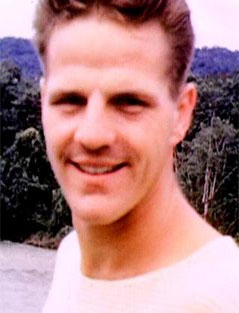
Philip James Elliot was an American Christian missionary and one of five people killed during Operation Auca, an attempt to evangelize the Huaorani people of Ecuador.

Nathanael Saint was an evangelical Christian missionary pilot who, along with four others, was killed in Ecuador while attempting to evangelize the Huaorani people through efforts known as Operation Auca.
HCJB, "The Voice of the Andes", was the first radio station with daily programming in Ecuador and the first Christian missionary radio station in the world. The station was founded in 1931 by Clarence W. Jones, Reuben Larson, and D. Stuart Clark. HCJB now focuses on Ecuador with unified programming on FM at 89.3 MHz in Pichincha, at 92.5 MHz in Manabí, at 96.1 MHz in Tungurahua and Cotopaxi, at 98.3 MHz in Esmeraldas and with separate programming on AM at 690 kHz. Broadcasts in Spanish and indigenous languages on 6.05 MHz (1 kW), continue on an intermittent basis with a new solid state transmitter which in 2017 replaced an older (5 kW) transmitter. These broadcasts were not listed on the HCJB English website as of February 2016.

Anthony Tyrone "Tony" Evans Sr. is an American Christian pastor, speaker, author, and widely syndicated radio and television broadcaster in the United States. Evans serves as senior pastor to the over-9,500-member Oak Cliff Bible Fellowship in Dallas, Texas.

Operation Auca was an attempt by five Evangelical Christian missionaries from the United States to bring Christianity to the Waodani or Huaorani people of the rain forest of Ecuador. The Huaorani, also known pejoratively as Aucas, were an isolated tribe known for their violence, against both their own people and outsiders who entered their territory. With the intention of being the first Christians to evangelize the previously uncontacted Huaorani, the missionaries began making regular flights over Huaorani settlements in September 1955, dropping gifts, which were reciprocated. After several months of exchanging gifts, on January 3, 1956, the missionaries established a camp at "Palm Beach", a sandbar along the Curaray River, a few kilometers from Huaorani settlements. Their efforts came to an end on January 8, 1956, when all five—Jim Elliot, Nate Saint, Ed McCully, Peter Fleming, and Roger Youderian—were attacked and speared by a group of Huaorani warriors. The news of their deaths was broadcast around the world, and Life magazine covered the event with a photo essay.
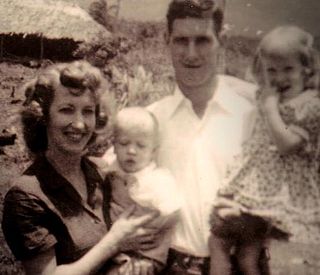
Roger Youderian was an American Christian missionary to Ecuador who, along with four others, was killed while attempting to evangelize the Huaorani people through efforts known as Operation Auca.

Clarence C. Moore was an engineer and minister at Radio Station HCJB with primary transmitters in Quito, Ecuador.
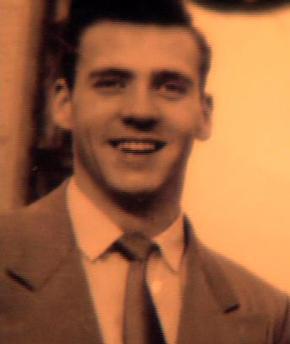
Theophilus McCully was a Christian missionary to Ecuador who, along with four other missionaries, was killed while attempting to evangelize the Huaorani people, through efforts known as Operation Auca.
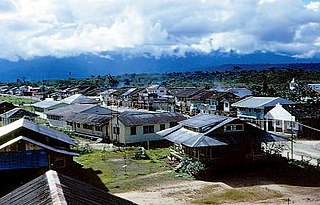
Shell is a city located on the western edge of the Ecuadorian Amazon and in the eastern foothills of the Andes. It is located about 94 miles (151 km) southeast of Quito, and roughly 4 miles (6.4 km) west of the provincial capital, Puyo. Its name comes from the Royal Dutch Shell corporation.
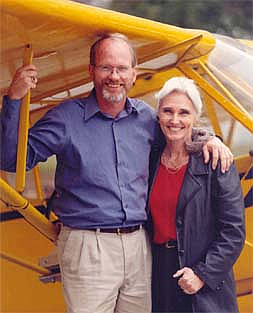
Stephen Farris Saint is an Ecuadorian-born business entrepreneur, pilot, and author. He is known for being the son of Nate Saint, a famous missionary pilot, as well as for his own work among indigenous tribes.
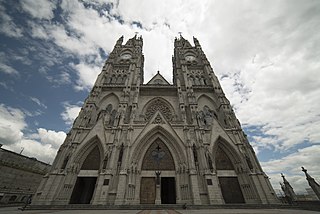
When it comes to religion, the Ecuadorian society is relatively homogeneous, with Christianity being the primary religion. Roman Catholicism is the main Christian denomination in the country. There are also minorities of other religions.
Mizoram Presbyterian ChurchSynod is the largest Christian denomination in Mizoram, northeast India. It was a direct progeny of the Calvinistic Methodist Church in Wales. It was the first church in Mizoram and is now one of the constituent bodies of a larger denomination Presbyterian Church of India (PCI), which has its headquarters in Shillong, Meghalaya. The administrative body called the Mizoram Synod has its headquarters at Mission Veng, Aizawl. As the first church, it remains the largest denomination in Mizoram.
The United Andean Indian Mission (UAIM), was an ecumenical and interdenominational Protestant mission, formed in the United States of America in 1946 with the purpose of working among the indigenous peoples in Ecuador, South America. The UAIM was created under the sponsorship of the Committee on Cooperation in Latin America, a multi-denominational agency that served as an umbrella organisation for all liberal Protestant missions in the region.

Iñaquito is a parish of Quito, Ecuador, located toward the north of the city. There is a large concentration of malls in the area, and the population is wealthy relative to the rest of Quito.
Avant Ministries is a non-profit, Christian mission agency focused on planting and developing churches worldwide. Headquartered in Kansas City, Missouri, and Winnipeg, Manitoba, Avant missionaries serve in church planting and church support ministries in Africa, Asia, Europe and North and South America.
The Boro Baptist Church Association (BBCA) is a Baptist Christian denomination in the state of Assam. Established in 1927 by the American Baptist Missionaries and later nurtured by Australian Baptist Missionary Society ABMS. It consists of 219 churches and fellowships with a total population 40,000 above and 18,000 plus baptized members. The BBCA has its headquarters in the Tukrajhar Baptist Mission compound in Chirang district of Bodoland, Assam. BBCA is working in partnership with Baptist World Alliance, Global Interaction (Australia), Asia Pacific Baptist Federation, Seva Bharat, Missionaries Upholders Trust, Inspire India and Tura Baptist Church in Church Plantation and community development ventures to bring transformation in the lives of people, spiritually and economically. The motto of the church is "Arise and Build" Nehemiah 2:18

George Augustus Palmer was an American Protestant clergyman from Philadelphia, Pennsylvania, who started the long-running Morning Cheer radio broadcast in 1931, which eventually had an international outreach. He founded the "Sandy Cove" Christian camp and conference center on the shores of the Chesapeake Bay in nearby North East, Maryland, in 1946. Palmer was head of Morning Cheer Inc., the non-profit owner of the campgrounds, with its corporate offices in Philadelphia. Under his leadership, the Morning Cheer organization supported the development of a hospital in Quito, Ecuador, in the 1950s and an orphanage for boys in India beginning in 1958.










